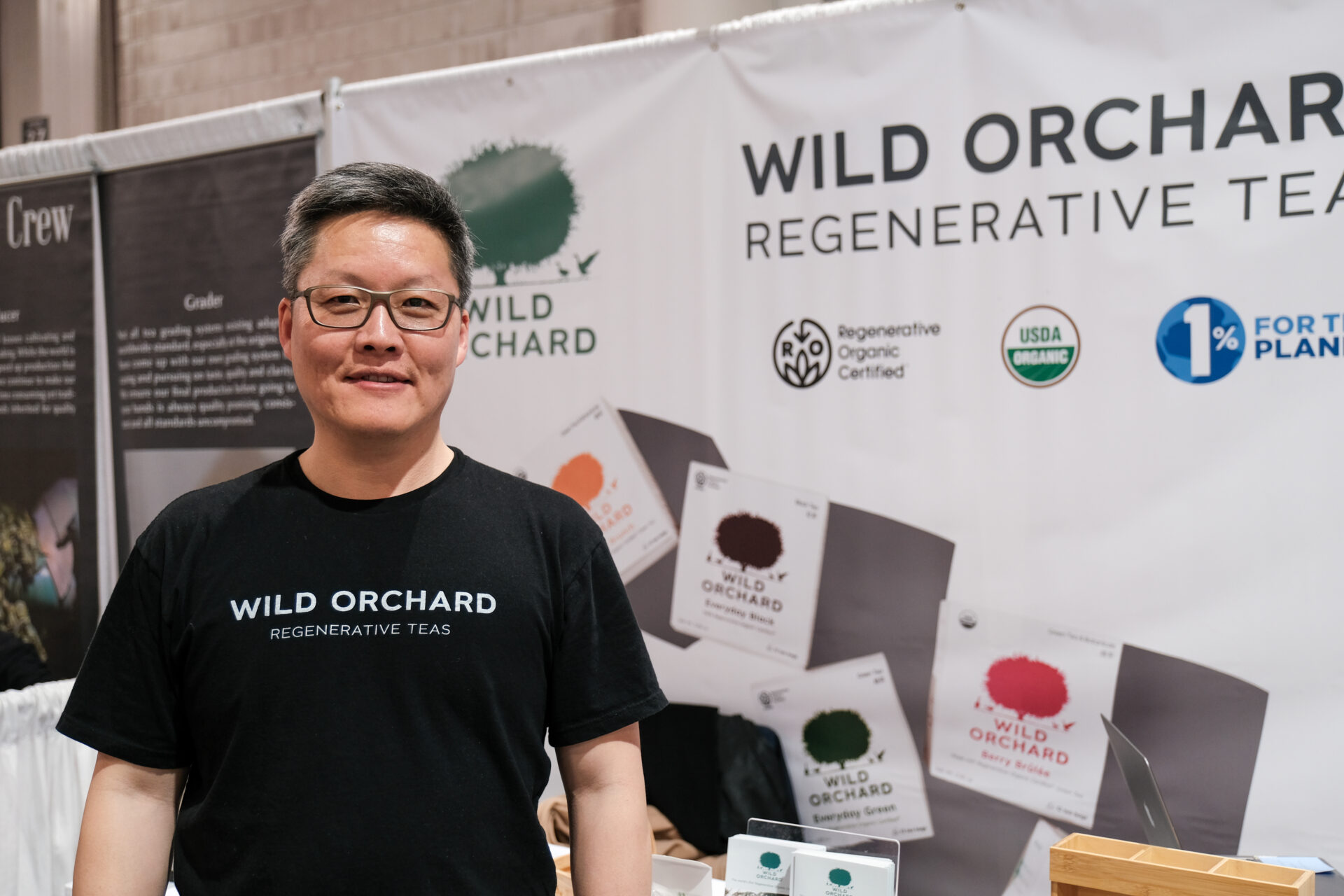Wild Orchard is a New York-based tea company that sources its tea leaves from a 1,000-acre organic farm on Jeju Island in South Korea. Since its inception in 2020, the company has won medals at tea competitions in France and Australia, and was added to Michelin 3-star restaurant Noma’s NYC menu.
Dig The Tea spoke to its co-founder Michael Ham about his own journey of discovering the health benefits of drinking tea, the definition of “regenerative” and how Mercedes Benz has inspired his branding strategy.
Here is an excerpt of our conversation edited for brevity and clarity.
Geese on the tea farm
— How did you get started with Wild Orchard?
We officially incorporated in January 2020, but we started research and finding the product-market fit in September 2018.
I started the company with several other co-founders, one of them is very close to our tea farm in Jeju Island. I actually visited the farm 20 years ago while I was in Korea. I had been drinking their tea, but I wasn’t an avid tea drinker, I would just have it once in a while, but I always knew the quality.
About six, seven years ago, my co-founder asked me if I would consider creating a tea business, so I started looking more into the market. I could see that tea was growing amongst the younger generations, who were a little more cognizant of sustainability issues and health, Gen Z and millennials particularly.
We knew that it was a special farm, and the farmers were not interested in expanding outside of Korea at the time. So we decided to put our energy into it and try to figure out the market, starting with loose leaves. Then we developed a blended line, a traditional line and a matcha line. We focus on direct-to-customer and food service first as part of our go-to-market strategy.
— Since then have you been drinking more tea?
Yes, I was like, if I’m going to commit to this, I gotta commit fully. That’s when I started drinking two liters a day in 2018, from drinking maybe once a month. After about three months, My mind became much sharper, and I’ve never been sick. I feel better than when I was in my 30s. I’m turning 50 next year.
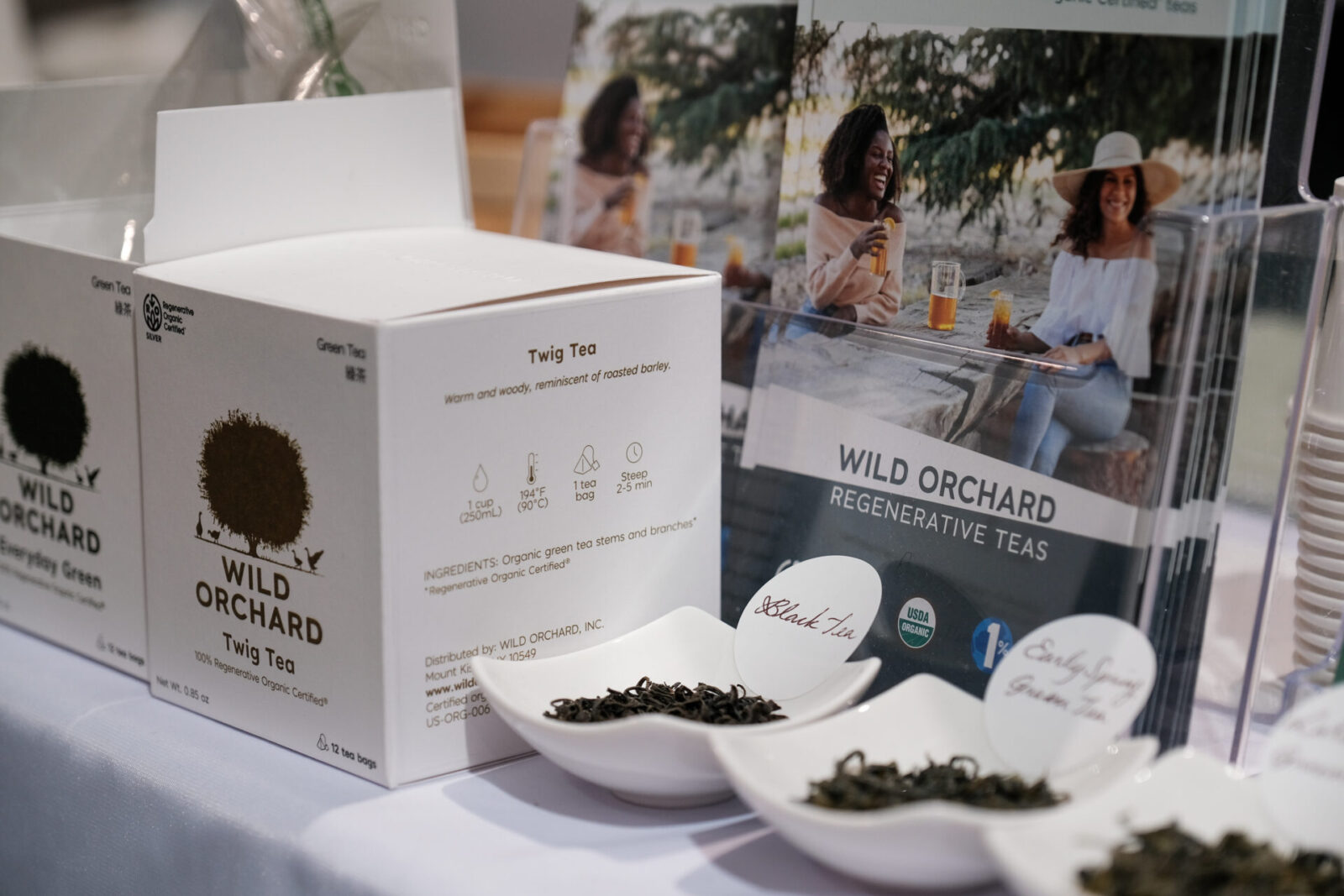
— There is a gaggle on the Wild Orchard logo. What’s the story behind it?
Our farming partner planted Camellia Sinensis seeds on the 1000-acre property in Jeju Island in 1999. The reason why they planted by seed, instead of transplanting, was because they knew that the roots would go deeper if they planted by seed.
When the tea plants were very young, they had to fight with the weeds. But the weeds would always win because the weeds were native, and the tea plants were new to that soil, right? So the farmers released a flock of geese to eat the weeds. They wouldn’t eat the tea because it’s too bitter for them. It allowed the tea to grow taller. At a certain point the tea plants could overpower the weeds and the farmers didn’t need the geese as much any more, but that’s why you see the geese on our company logo.
— Wild Orchard attained the Regenerative Organic certification in 2022. What is this certification and what does it imply?
The founders of Regenerative Organic Alliance, which gives out that certification are Patagonia, Dr. Bronner’s and Rodale Institute. Patagonia and Dr. Bronner’s are companies known for doing their businesses not just for profit, but doing good with that. Rodale Institute is a pioneer of organic farming in the US, and they coined the term “regenerative”.
The alliance has created a set of regenerative principles that we follow at our tea plant. One of them is cover cropping. When you put a cover crop on the bare soil, it acts like clothing protecting the skin. The other is integrating compost, because it cultivates rich microbiomes in the soil, and as a result increases nutrient uptake of the tea plants. Also no chemical fertilizers and pesticides. Tea leaves suck up whatever is in the soil. If you don’t drink tea that is clean, you are going to ingest it when you brew it. Following these principles allows our crop to be optimized for health benefits.
When we look at all the certifications out there, such as Demeter Biodynamics and USDA Organic, Regenerative Organic Certified is the highest standard. Obviously many people haven’t heard of it yet. But they will start learning little by little, and we want to be part of that education process.
The term “sustainable” often makes people think it is about keeping it the same and it is just net zero. But our environment is in an emergency crisis right now and we have to be net positive. That’s why I prefer to use the term “regenerative” as opposed to “sustainable”. It’s making the environment better, not just keeping it unchanged. We have done a study on our farm. One kilogram of tea produced draws down 380 kilograms of carbon from the air. It’s a tremendous net positive.
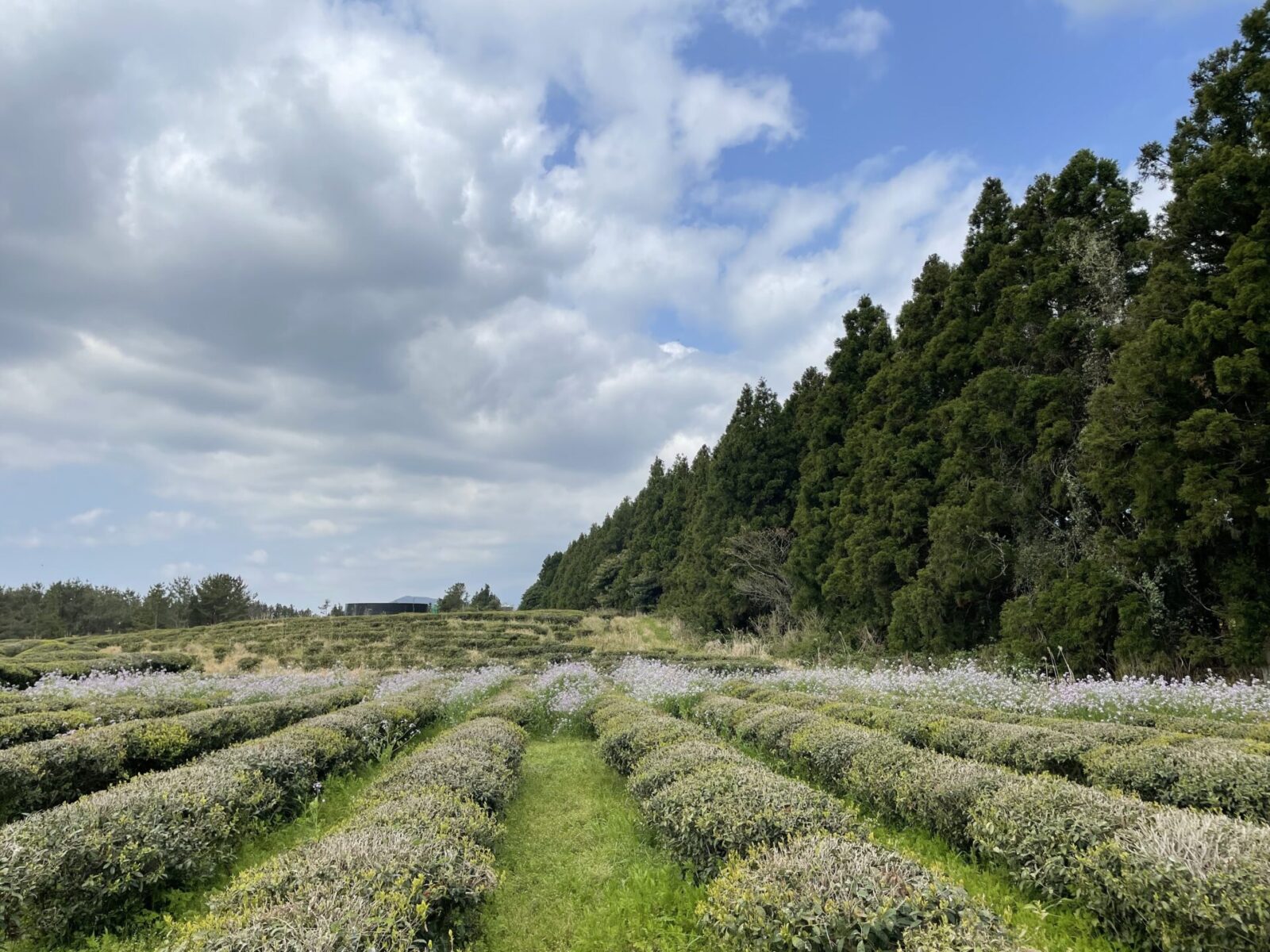
Drawing inspiration from Mercedes
— You mentioned the business is not profitable yet. What needs to be done in order to get there?
The biggest obstacle is we haven’t established ourselves in the direct-to-customer market. Because the price point of premium tea is so high that it’s not like you can advertise on social media and people would just buy. We are still in the beginning stages and we haven’t really worked on that yet.
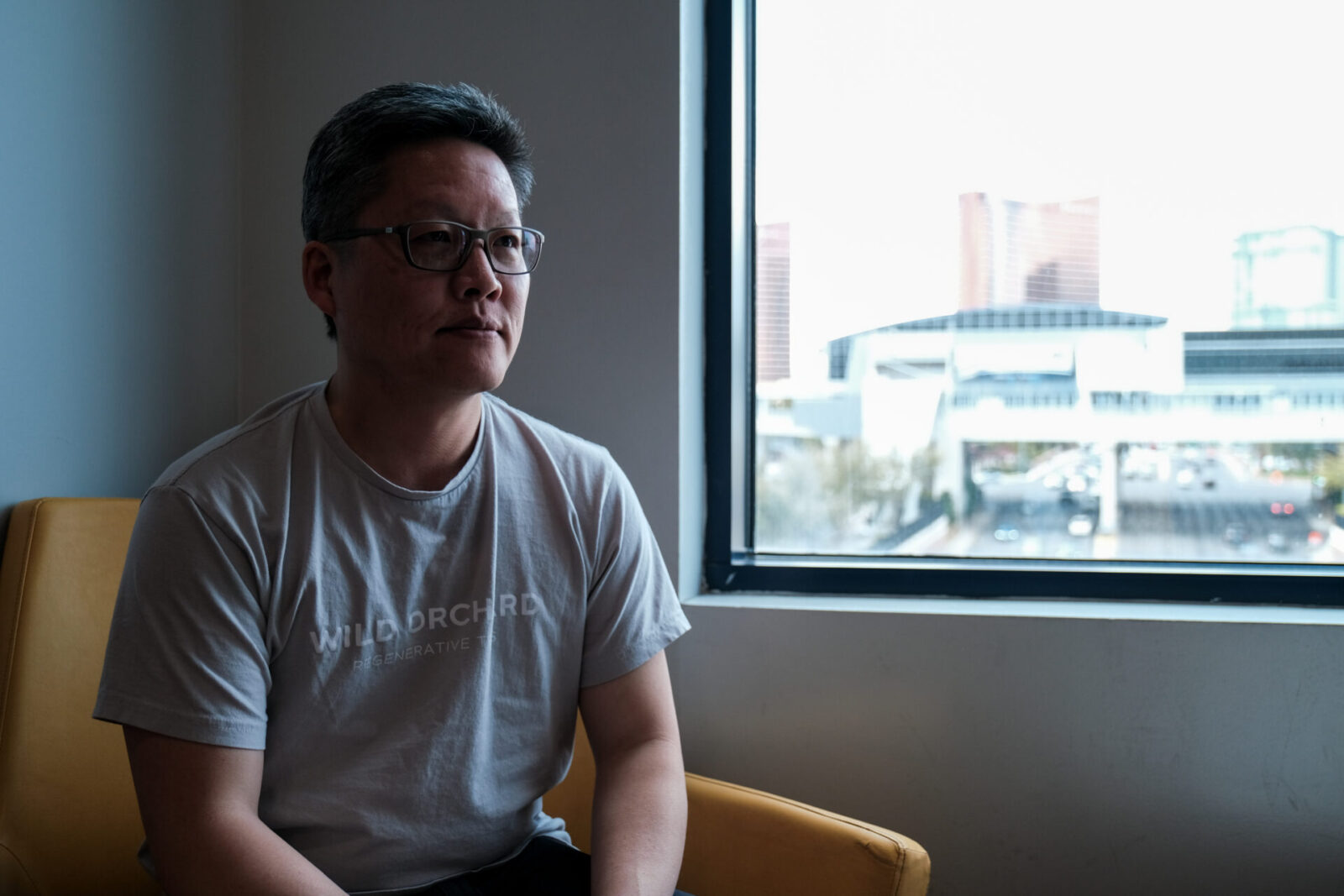
The other thing is when we are able to invest, we definitely have to invest in a processing facility. Right now, it’s all handcrafted. When we start doing year-round harvesting, we need a process that’s efficient. That also means we need to implement electric-powered cutting machines and harvesting machines, because we don’t want any fossil fuels on the tea farm. We don’t use any gasoline-powered tools because tea is a bioremediator, so all the exhaustion in the environment will go right back into the tea leaf, and that would go against our principles.
— What opportunities do you see in the US tea market?
During our research, we discovered the majority in the US drinks ice tea with sugar in it. And then when we looked at the retail market, it’s all commodity tea on the shelf and there was no artisan or specialty tea that was of high quality. The tea category in the US has been very stagnant with little innovation and vision for the future. We thought to ourselves, we have access to a 1,000-acre farm that produces high quality tea. Let’s bring it into people’s households.
— How do you do that?
We supply our premium leaves to Michelin-starred restaurants. But we don’t make a lot of money because they are not ordering them in large quantities, even though the margin is there. For us the opportunities don’t necessarily come from being in Michelin, but from what those relationships might lead to in three months, three years or five years. It’s like fermentation.
We are also planning to sell our tea bags at places like Whole Foods Market. Yes, the best way to consume tea is to brew from loose leaves, but most people drink through tea bags. We want as many people as possible to have access to high quality tea.
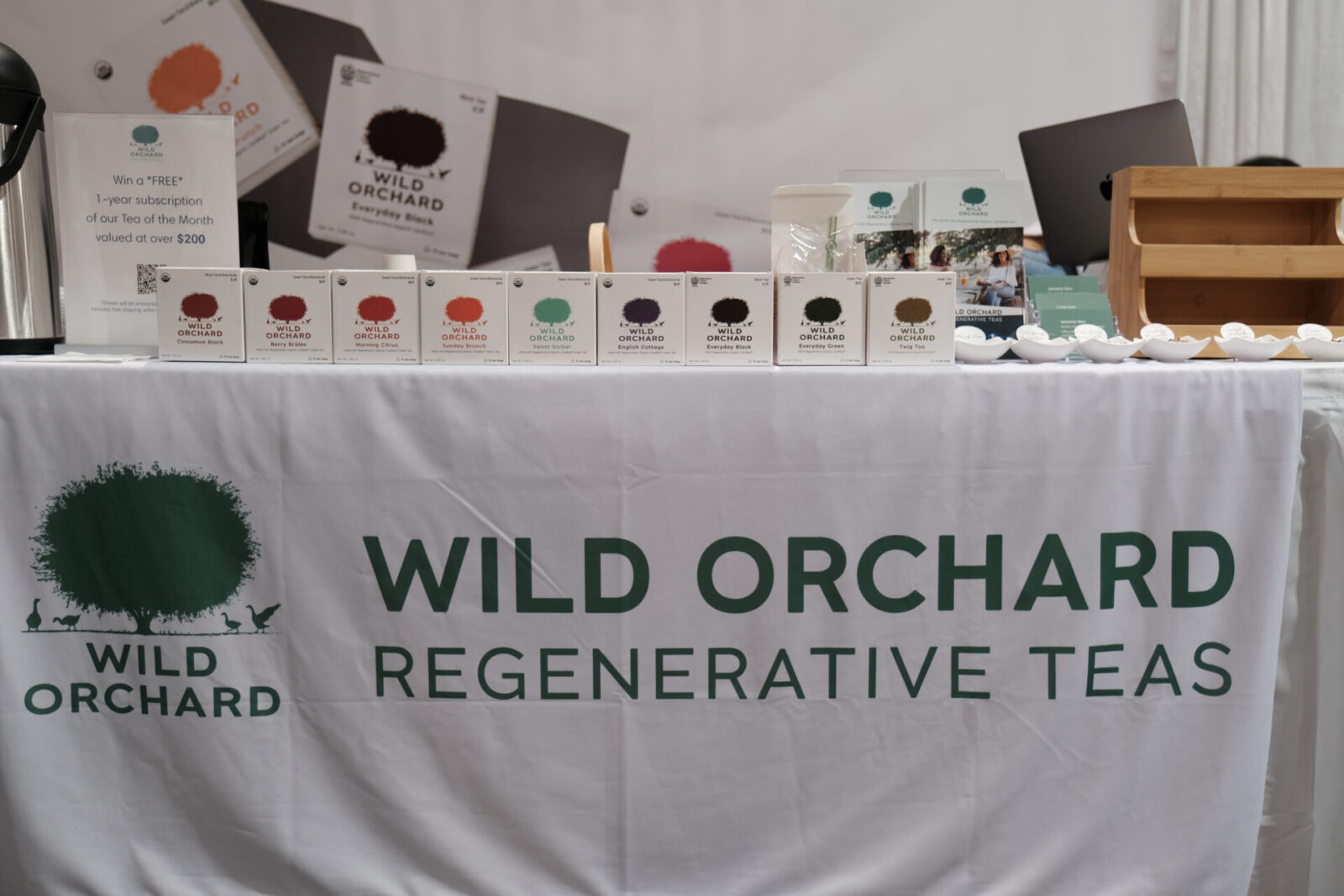
I draw inspiration from Mercedes Benz. In the 80s, they only had S class and only rich people could drive it. But they thought, why are we limiting ourselves? We can reach the mid-market where someone is willing to stretch a little to get a Mercedes, as opposed to a Honda. That’s why they came up with the E and C classes. Most companies don’t do that, they are either high, low or mid-grade.
It’s a similar concept. We want to build our value on transparency, quality and trustworthiness, no matter the price of our products.
Translation: Sophia Swanson
Marco is a design researcher who works with small to large companies to develop new products and services. Before stepping into the world of design consulting, he spent 10 years working as a financial journalist in Hong Kong, Tokyo and New York. Marco is also the host of KIKITE, an interview podcast.
Editor and creator of the future through words. Former associate editor of Huffington Post Japan. Became independent after working for a publishing company and overseas news media. Assists in communications for corporates and various projects. Born in Gifu, loves cats.
Marco is a design researcher who works with small to large companies to develop new products and services. Before stepping into the world of design consulting, he spent 10 years working as a financial journalist in Hong Kong, Tokyo and New York. Marco is also the host of KIKITE, an interview podcast.
